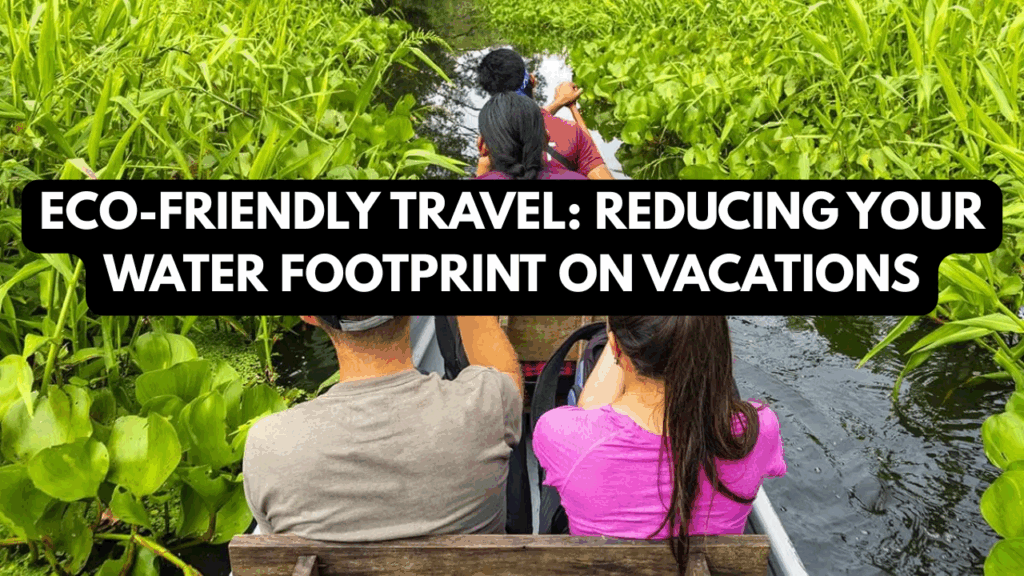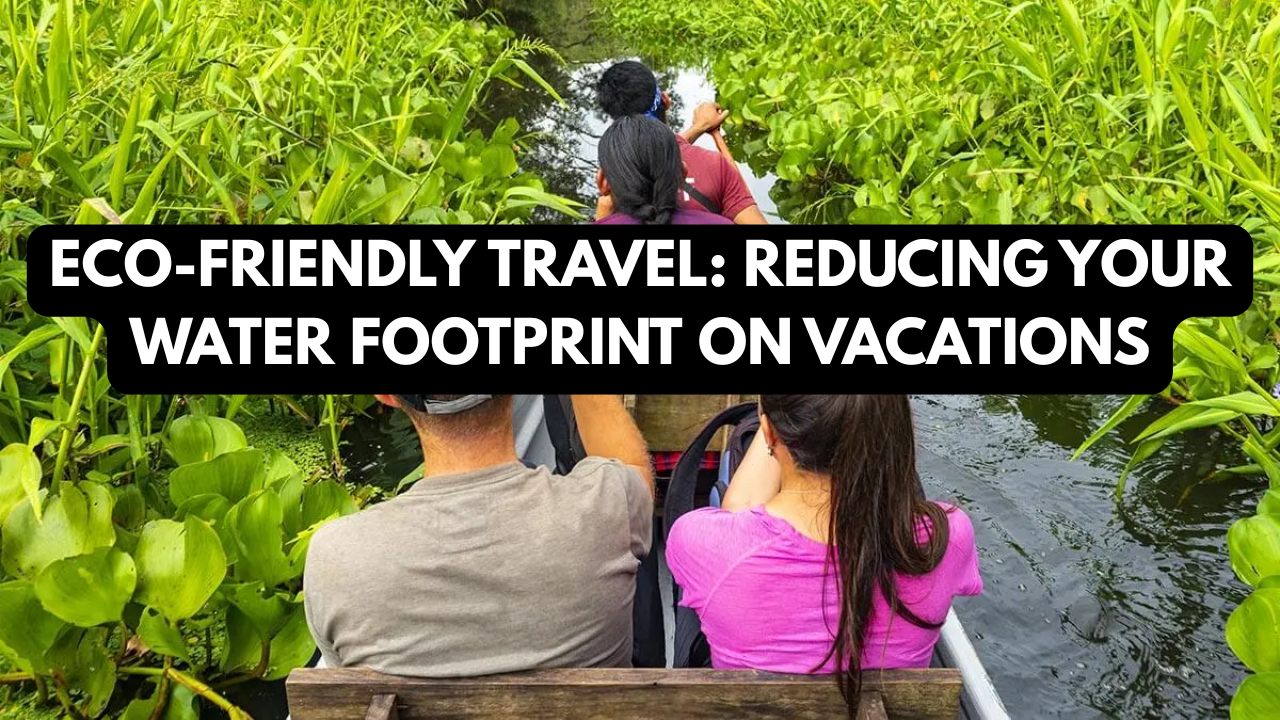
Vacations are a time to relax, explore, and recharge—but they also come with hidden environmental costs. While most eco-travel advice focuses on carbon emissions, water usage during travel is often overlooked. From hotel showers and laundry services to food and recreation, our vacation habits can significantly impact local water resources, especially in destinations already facing scarcity.
This guide highlights practical ways travelers can reduce their water footprint without sacrificing comfort or experience.
Why Water-Smart Travel Matters
- Tourism hotspots are vulnerable: Many popular destinations are located in regions already struggling with droughts.
- Overuse strains locals: Excessive water use by tourists can reduce availability for residents.
- Hotels and resorts consume heavily: Laundry, pools, and landscaping account for enormous water waste.
- Sustainable tourism grows: Travelers are increasingly seeking eco-friendly accommodations and practices.
By becoming mindful of water use, every traveler can help preserve local ecosystems while still enjoying their getaway.
Smart Habits for Reducing Water Use While Traveling
1. Choose Eco-Certified Hotels
Look for accommodations with green certifications (like LEED or Green Key) that actively conserve water through low-flow fixtures, greywater systems, and towel reuse programs.
2. Practice Towel and Linen Reuse
Hotels wash linens daily unless asked not to—reusing towels and sheets for a few days can save gallons of water and energy.
3. Limit Showers and Baths
While long showers may feel indulgent on vacation, they waste enormous amounts of water. Opt for short showers and avoid baths unless necessary.
4. Say No to Daily Laundry Services
Resist sending clothes for washing after single uses. Pack versatile, quick-dry clothing that requires less frequent washing.
Water-Smart Dining and Recreation
1. Eat Local and Plant-Based When Possible
Imported foods and meat-heavy diets often come with higher water footprints. Choosing local, seasonal dishes supports the community and reduces hidden water use.
2. Skip Water-Intensive Activities
Golf courses, luxury pools, and certain theme parks consume massive amounts of water. Consider alternatives like hiking, biking, or cultural tours.
3. Carry a Reusable Bottle
Avoid bottled water by carrying a reusable filter bottle. This prevents plastic waste and encourages mindful drinking habits.
Eco-Friendly Packing for Water Efficiency
- Quick-dry fabrics: Reduce laundry needs.
- Concentrated toiletries: Use eco-friendly soaps and shampoos that are less harmful to local water systems.
- Collapsible water bottles: Encourage refilling instead of buying new bottles.
- Biodegradable wipes: Useful in areas with limited water access.
Table: Tourist Water Habits vs. Sustainable Choices
| Tourist Habit | Water-Wasteful Outcome | Eco-Friendly Alternative |
|---|---|---|
| Daily towel and linen changes | Thousands of gallons wasted yearly | Reuse towels/linens during stay |
| Long showers and baths | 50–100 liters wasted per shower | Quick showers, skip baths |
| Frequent laundry service | High water and detergent use | Wash only when necessary |
| Imported, water-heavy foods | Higher hidden water footprint | Local, seasonal, plant-based meals |
| Plastic bottled water | Waste of water and plastic resources | Reusable filtered bottle |
Broader Benefits of Water-Smart Travel
- Support for local communities: Leaves more water available for residents.
- Conservation of natural habitats: Reduces strain on rivers, lakes, and aquifers.
- Lower personal expenses: Eco-friendly accommodations often save money too.
- Authentic travel experiences: Local dining and recreation offer deeper cultural immersion.
- Contribution to global sustainability: Sets a positive example for future travelers.
Overview Table
| Tip | Water Saved | Impact |
|---|---|---|
| Reuse towels/linens | 15–30 gallons per stay | Cuts hotel laundry waste |
| Short showers | 10–20 gallons per shower | Conserves freshwater in water-scarce areas |
| Eat local, plant-based foods | Reduces hidden water footprint | Supports sustainable agriculture |
| Avoid water-intensive leisure | Saves thousands of liters | Protects local resources |
| Use reusable bottles | Avoids production water for plastic | Reduces pollution and water waste |
Final Thoughts
Sustainable travel isn’t just about reducing your carbon footprint—it’s also about conserving water, one of the planet’s most precious resources. By making small, mindful choices—like skipping daily laundry, eating local meals, and keeping showers short—you can enjoy unforgettable vacations while respecting the needs of the environment and local communities.
Eco-friendly travel is not about sacrifice but about responsible enjoyment. With every trip, you can leave a lighter footprint and inspire others to do the same.
FAQs
Q1: Do eco-certified hotels really save water?
Yes, many use advanced water-saving technologies and programs that cut consumption drastically.
Q2: What’s the easiest way to reduce my water footprint while traveling?
Reusing towels and keeping showers short are simple but highly impactful.
Q3: Can sustainable travel still feel luxurious?
Absolutely—many eco-resorts offer luxury experiences while maintaining strict water and energy conservation practices.

